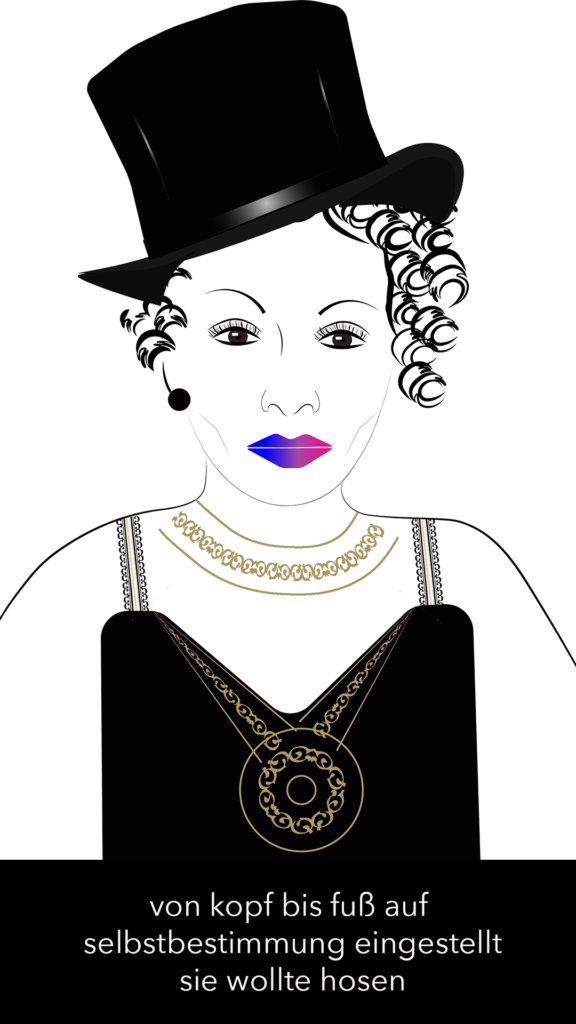
In der März Ausgabe unserer monatlichen „Haiku meets Art“ Reihe widmen wir der in Berlin geborenen Marlene Dietrich einen Beitrag. Sie gilt als eine der wenigen deutsch-sprachigen Künstlerinnen, die auch international erfolgreich war. Während der Zeit des Nationalsozialismus weigerte sie sich die nationalsozialistische Propaganda zu unterstützen und kehrte Deutschland den Rücken. Sie nahm die amerikanische Staatsbürgerschaft an und unterstützte US- Soldaten im 2. Weltkrieg, in dem sie für sie sang und verletzte Soldaten im Lazarett besuchte. US Präsident Truman verlieh ihr nach Ende des Krieges die Freiheitsmedaille. In dem in den 30er Jahren erschienenen Film „Marokko“ trat sie im Smoking auf, den sie privat auch trug und revolutionierte damit nicht nur die Modewelt, sondern brach damit auch Tabus der Geschlechterrollen. Seit den 70er Jahren lebte sie –bis zu ihrem Tod 1992– zurückgezogen in Paris. Obwohl sie jahrzehntelang in Paris lebte, war es ihr Wunsch neben ihrer Mutter in Berlin begraben zu werden.
In the March edition of our monthly „Haiku meets Art“ series, we dedicate an article to Berlin-born Marlene Dietrich. She is considered one of the few German-speaking artists who was also internationally successful. During the National Socialist era, she refused to support National Socialist propaganda and turned her back on Germany. She became an American citizen and supported US soldiers during the Second World War by singing for them and visiting injured soldiers in military hospitals. US President Truman awarded her the Medal of Freedom at the end of the war. In the film „Morocco„, which was released in the 1930s, she appeared in a tuxedo, which she also wore in private, not only revolutionizing the fashion world, but also breaking taboos on gender roles. She lived in seclusion in Paris from the 1970s until her death in 1992. Although she lived in Paris for decades, it was her wish to be buried next to her mother in Berlin.
Dans le numéro de mars de notre série mensuelle „Haiku meets Art„, nous consacrons un article à Marlene Dietrich, née à Berlin. Elle est considérée comme l’une des rares artistes de langue allemande à avoir également connu un succès international. Pendant la période du national-socialisme, elle a refusé de soutenir la propagande nazie et a tourné le dos à l’Allemagne. Elle a pris la nationalité américaine et a soutenu les soldats américains pendant la Seconde Guerre mondiale en chantant pour eux et en rendant visite aux soldats blessés à l’hôpital. Le président américain Truman lui a décerné la médaille de la liberté à la fin de la guerre. Dans le film „Maroc„, sorti dans les années 30, elle apparaissait en smoking, qu’elle portait également en privé, révolutionnant ainsi non seulement le monde de la mode, mais brisant également les tabous des rôles sexuels. Depuis les années 70, elle a vécu retirée à Paris jusqu’à sa mort en 1992. Bien qu’elle ait vécu à Paris pendant des décennies, elle souhaitait être enterrée à Berlin aux côtés de sa mère.